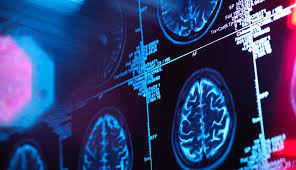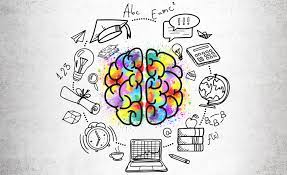
Neuroscience
Neuroscience is a rapidly growing field of study that combines biology, chemistry, physics, and psychology to understand the nervous system and its functions. It is an interdisciplinary field that has gained significant attention in recent years. Neuroscience is the scientific study of the nervous system, which includes the brain, spinal cord, and nerves. Neuroscientists use various techniques such as imaging, electrophysiology, genetics, and behavioral analysis to understand how the nervous system functions and how it is affected by diseases or injuries. Neuroscience has applications in various fields such as medicine, psychology, artificial intelligence,computer science, and engineering.In India, the demand for neuroscientists is increasing as the country is investing in research and development in this field.
Role Desciption
Neuroscientists in India can work in various roles such as researchers, clinicians, educators, and industry professionals. Some of the key roles and responsibilities of neuroscientists are:
- Conducting research on various aspects of the nervous system such as brain development, neural circuits, neurodegenerative diseases, and neurological disorders.
- Developing new diagnostic tools and treatments for neurological disorders such as Alzheimer's disease, Parkinson's disease, epilepsy, and stroke.
- Collaborating with interdisciplinary teams such as physicians, psychologists, engineers, and computer scientists to develop new technologies for neuroscience research and clinical applications.
- Teaching and mentoring students at various levels such as undergraduate, graduate, and postgraduate levels.
- Communicating scientific findings to the public through media outreach and public lectures.
Eligibility
Educational Pathway
- 10+2 in science with PCB
- B.Sc. in Neuroscience/ Biology/ Psychology
- M.Sc.in Neuroscience
- Doctoral degree (Ph.D.) in Neuroscience
Pros/Cons
Pros:
- High demand for neuroscientists due to increasing investment in research & development by government agencies & private organizations
- Good job opportunities & career growth prospects across various sectors
- Opportunities to work on cutting-edge research projects & collaborate with interdisciplinary teams leading to publication of research papers & patents resulting in recognition & awards at national & international levels etc.
- Opportunities to attend seminars/conferences/workshops to present research findings leading to networking opportunities & exposure to latest trends & developments in the field etc.
Cons:
- High competition due to increasing number of graduates pursuing careers in neuroscience resulting in fewer job opportunities & higher competition during job interviews etc.
- Long duration required to complete academic qualifications & gain practical experience leading to delayed entry into the workforce compared to other fields like engineering/medicine etc.
Leading Professions
View All
Research Scientist
Research scientists are ...
10.0LPA

Clinical Neuroscientist
Clinical neuroscientists...
10.0LPA

Neuroscience Educator
Neuroscience educators a...
10.0LPA

Industry Professional
Industry professionals a...
10.0LPA
CAREER VIDEOS
Career Path
10+2 in science with PCB
1 Steps
Skills
Recruitment Area
NGOs ,
Universities and Colleges ,
Pharmaceutical Companies ,
Government hospitals ,
Private hospitals ,
International Organizations ,
Research Institutions ,
Government Agencies .
Recruiters
All India Institute of Medical Sciences (AIIMS) ,
Indian Institutes of Technology (IITs) ,
Indian Institute of Science Bangalore (IISc) ,
National Institute for Research in Reproductive Health (NIRRH) Mumbai ,
All India Institute of Medical Sciences (AIIMS) Delhi ,
Tata Memorial Centre Mumbai ,
National Brain Research Centre (NBRC) Bangalore ,
Indian Council of Medical Research (ICMR) Delhi ,
Centre for Cellular & Molecular Biology (CCMB) Hyderabad ,
Bhabha Atomic Research Centre (BARC) Mumbai ,
Defence Research & Development Organisation (DRDO) Delhi .
Explore Colleges
Exams & Tests
Interested? Take the next step for this career
10+2 in science with PCB
- 1 Steps
Skills Needed
Exams and Tests
Recruitment Area
NGOs ,
Universities and Colleges ,
Pharmaceutical Companies ,
Government hospitals ,
Private hospitals ,
International Organizations ,
Research Institutions ,
Government Agencies .
Recruiters
All India Institute of Medical Sciences (AIIMS) ,
Indian Institutes of Technology (IITs) ,
Indian Institute of Science Bangalore (IISc) ,
National Institute for Research in Reproductive Health (NIRRH) Mumbai ,
All India Institute of Medical Sciences (AIIMS) Delhi ,
Tata Memorial Centre Mumbai ,
National Brain Research Centre (NBRC) Bangalore ,
Indian Council of Medical Research (ICMR) Delhi ,
Centre for Cellular & Molecular Biology (CCMB) Hyderabad ,
Bhabha Atomic Research Centre (BARC) Mumbai ,
Defence Research & Development Organisation (DRDO) Delhi .



















